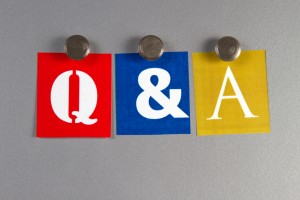 As Passover nears, OU Kosher presents the ten most common questions asked to-date on the OU Kosher Hotline by consumers in preparation for the holiday. NOTE: These statements are valid for Passover 2013 only. The OU Kosher hotline (212-613-8241) will be open for extended hours pre-Passover—from 10:00 a.m-12 noon on Sunday, March 24 and from 10:00 a.m-1:00 p.m on Monday, March 25 (Passover begins that evening).
As Passover nears, OU Kosher presents the ten most common questions asked to-date on the OU Kosher Hotline by consumers in preparation for the holiday. NOTE: These statements are valid for Passover 2013 only. The OU Kosher hotline (212-613-8241) will be open for extended hours pre-Passover—from 10:00 a.m-12 noon on Sunday, March 24 and from 10:00 a.m-1:00 p.m on Monday, March 25 (Passover begins that evening).
——————————————————————————
- Q: Does water require special certification for Passover?
A: All unflavored bottled water, seltzer and sparkling water is kosher for Passover, even without any kosher supervision. - Q: Can I drink Coke on Passover?
A: Coca-Cola will again be available with an OU-P for Passover in regular and diet flavors. Aside from the New York metropolitan area, Coke will be available in Boston, Baltimore, Washington, Miami, Atlanta, Houston, Philadelphia, and Los Angeles. This year, in New York, Coca-Cola items will be made with an OU-P in 2-liter bottles. All these items, of course, require the P symbol. Most of the bottling plants servicing these markets will designate the Passover Coke items with a distinctive yellow cap in addition to the P symbol on the cap or shoulder of the bottle. - Q: Can I use my facial cosmetics on Passover?
A: All facial cosmetics are acceptable for use except for lipsticks. This is a dispute among the rabbis, and we encourage you discuss the matter with your personal Orthodox rabbi. - Q: Does Extra Virgin Olive Oil need to be certified kosher for Passover?
A: All OU certified extra virgin olive oils are kosher for Passover, as long as they bear the OU symbol. All other oils (including other varieties olive oil) require a reliable kosher for Passover certification to be consumed on Passover. - Q: Which baby formula can I use for my infant on Passover?
A: Most infant formulas are made from soy products. Use of kitniyot does not apply to infants. However, you must take care to keep bottles, nipples and formula away from the general kitchen area. Any mixing or washing should be done elsewhere, such as in the bathroom sink. Click here for a list of acceptable formulas. - Q: Costco is having a sale on salmon. May I use the frozen Kirkland Salmon?
A: Due to the frequent application of glazes to raw fish, it should be purchased only with reliable kosher certification. However, Kirkland Frozen Wild Salmon is acceptable after washing it off, while the Kirkland Atlantic (Farm Raised) Salmon is acceptable as is for Passover when it bears the OU symbol. - Q: Are there any coconut oils that can be used on Passover?
A: Only the Spectrum Organic Virgin/Crude Coconut Oil is acceptable for Passover when bearing the OU symbol. - Q: Are any nutritional supplements or food thickeners acceptable for Passover?
A: Despite the OU’s best efforts, OU-certified manufacturers of nutritional supplements have not agreed to special Passover productions. In an effort to help rabbis to make decisions about nutritional supplements for Passover, the OU has identified those products that are halachically acceptable for cholim (the sick). Click here for an extensive listing of nutritionals and dietary supplements. - Q: Are raw nuts acceptable for Passover?
A: Raw nuts in their shell do not require Passover certification. Shelled nuts that list BHA or BHT (preservatives) in the ingredients require special Passover certification. They are sprayed on the nuts using corn derivatives (kitniyot). Please note that regarding peanuts different communities have different customs. Some hold them to be kitniyot; while others eat peanuts on Passover. - Q: What coffees are acceptable for Passover?
A: All regular ground coffees are acceptable for Passover use when bearing an OU. Decaffeinated coffee: Coffee is often decaffeinated by means of ethyl acetate, which is derived from either kitniyot or chametz. Therefore, decaffeinated coffees are not acceptable for Passover unless specifically marked for Passover or found in the OU Passover Guide under the heading of products certified for year round use and Passover. Instant coffees often contain maltodextrin, which is derived from either from corn (kitniyot) or wheat (chametz). Therefore, all instant coffees require special Passover certification unless explicitly mentioned in the OU Passover Guide under the heading of products certified for year round use and Passover.
——————————————————————————–
We want to help you prep: Kosher-for-Passover products, recipes and articles are available on the the OU Kosher Facebook and Twitter accounts.
Have your own Passover questions? Submit it them via Facebook and Twitter. Questions may also be submitted to kosherq@ou.org.
Does your Seder look like what the rabbis really had in mind? Probably not. A bold suggestion for your Seder this year.
Why is the secret of happy couples so important to religion? And what does it have to do with Pesach? Find out here.
The words of this author reflect his/her own opinions and do not necessarily represent the official position of the Orthodox Union.

